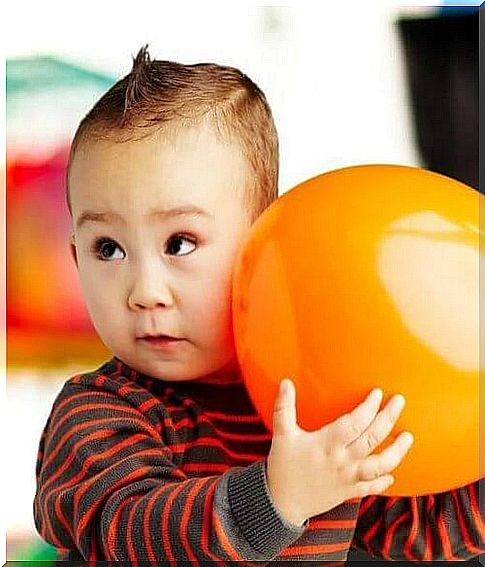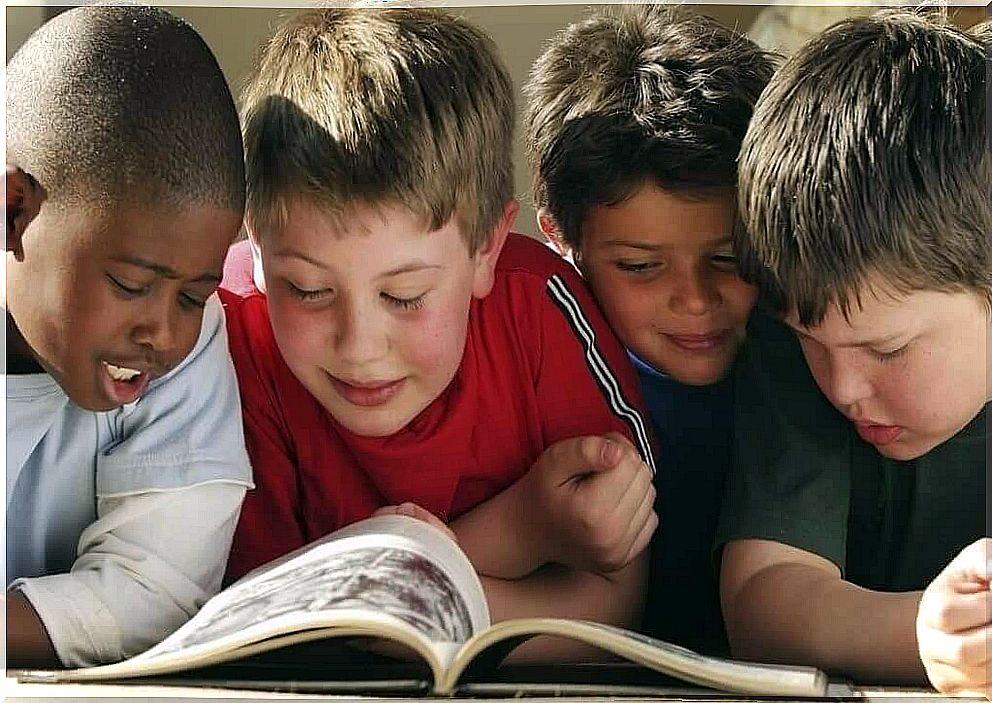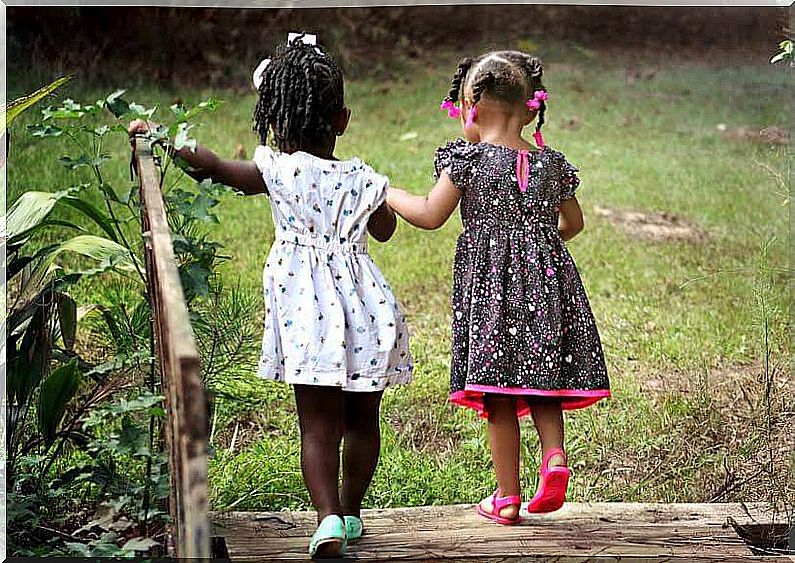Why Doesn’t My Child Know How To Share?

We often learn to enjoy the pleasure of sharing only when we reach a certain age. Happiness in sharing with others gives life spice, but it must be emphasized that a certain degree of maturity is needed to understand how beautiful this act is. Your child will learn how to do this, don’t worry. He may not know how to share now, as happens to every small child, but give him time and guide him on this journey and you will see fantastic results.
Many parents say with great concern: M I do not know son share. Some get frustrated and ignore how common it can be that children don’t want to share their stuff. Especially if they are between 18 months and 2 years of age.
Why does my child not know how to share?
To this concern is added the great confusion they often feel at not knowing when this phase will pass. Therefore, many times they force the child to share their toys. However, this attitude has the opposite effect on the child, who will cling to his things and stubbornness more than before.
For this reason, there are a few things to consider before forcing your child to share. First, you need to know that sharing is an act that requires trust, empathy and security. And these feelings work the same way they do in adults.
We share with people we trust and that’s a fact. We adults, as selfless as we may be, must recognize that we don’t share everything we have or our feelings with anyone. So why do we think it should be any different for children?

Sharing requires trust
Between 18 months and 2 years of age, social relationships with children of their own age tend to be quite unstable. This is because they form and unravel very easily.
The friendships that your child makes, even if they can be important, are short-lived because they are extinguished when contact with these children is not possible. In addition, most of his friendships turn out to be very changeable, because at this age children change their playmates very frequently.
But your child faces another crucial difficulty: because he still can’t speak very well, he lacks the language skills to make agreements. And to share objects it is definitely necessary to reach certain agreements. Like, for example: “I’ll lend you my toy car, but then you give it back to me”. This is one of the reasons why he doesn’t know how to share.
These conditions typical of the child’s age make it more difficult to be able to trust the other child to the point of sharing his things with him. However, as you know, this situation will not be eternal; your child who is unable to share today will learn to do so as he continues to grow and acquire skills.
My son doesn’t know how to share: the importance of not obliging him
When your child is between 3 and 5 years of age, relationships with children of the same age will start to be more stable, because he is already in school and can speak more fluently. In addition, the sense of friendship begins to develop more deeply and his language is enriched day by day. All these gradually developing abilities make him better able to share his things with those he considers his friends.
It is vital that you avoid forcing your child to share their things with other people or other children. If it’s not his will, then don’t force him. Maybe he’s not ready to do it yet.

So when you understand the situation in all its dimensions and don’t force him to do something he doesn’t want to do, you are helping to defend his personal space. In addition to teaching him to say “no” and to assert himself. Your child must learn peacefully and without aggression, and your intervention and guidance as a parent in this area will be essential.
It is important to find a meeting point so as not to force children to accept interactions with other children or adults when they do not want to. It is not healthy to teach them to say “yes” to everything against their will; the best thing is that they learn that often saying “no” is neither offensive nor inappropriate.
By putting these concepts into practice, you will be helping your children develop self-affirmation, assertiveness, and self-care strategies. So, when they grow up and have to face some uncomfortable or dangerous situation, they will be able to say “no”, because they have developed the necessary skills to do so.
Trust is essential to be able to share
And while it may seem contradictory, this has nothing to do with encouraging your child not to learn to share. The ideal is to accompany him in his social development process, so that even if he does not know how to share now, he learns with you to be capable of it. He will, trust me, you just have to respect his times and his personal preferences.
It is important during this process to teach your child how important it is to respect the welfare of others. How do you do? Speaking. It is essential that he understands that when another child does not want to lend him his belongings, he must respect him. Just as his decisions are respected, those of others must also be respected.
You will see that over time your child will begin to share his toys with certain people and at certain times. The best thing you can do is observe him so that you can determine under what circumstances and with which children he feels trust enough to share his things. So you can encourage the fact that it can share more easily.
You can reinforce the value of sharing by telling him it’s okay for others to use his stuff. And it’s also okay to heal them and be careful so that others heal them too. Over time, the child will begin to discover that sharing is a human nature activity. Everyone likes to share content on social networks, good food with the people we love, a conversation or a coffee with a good friend.









